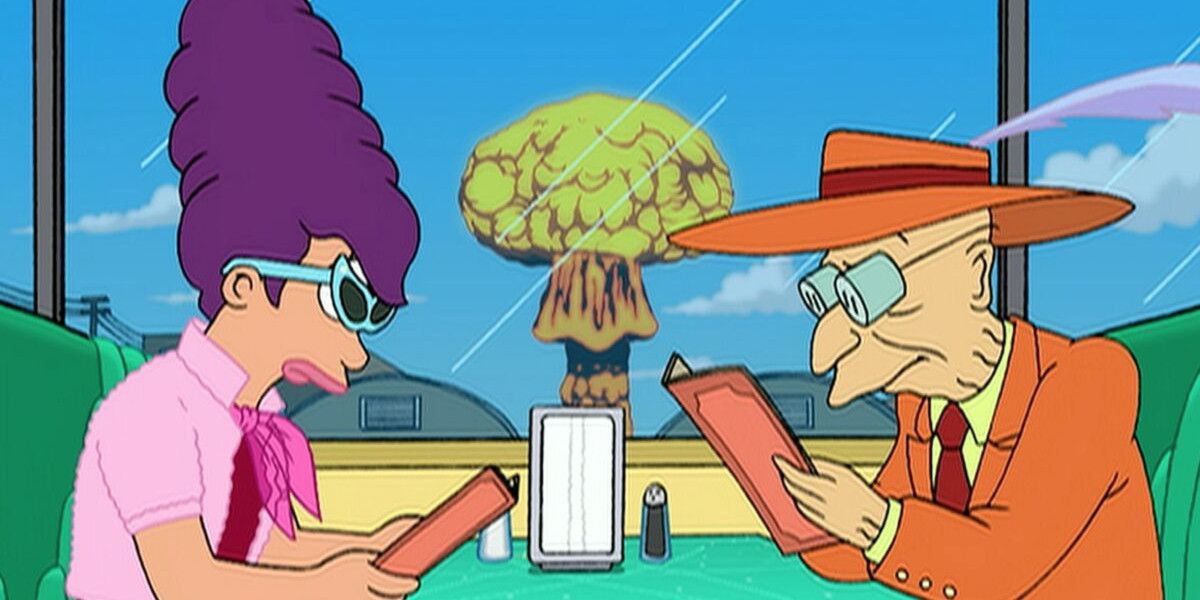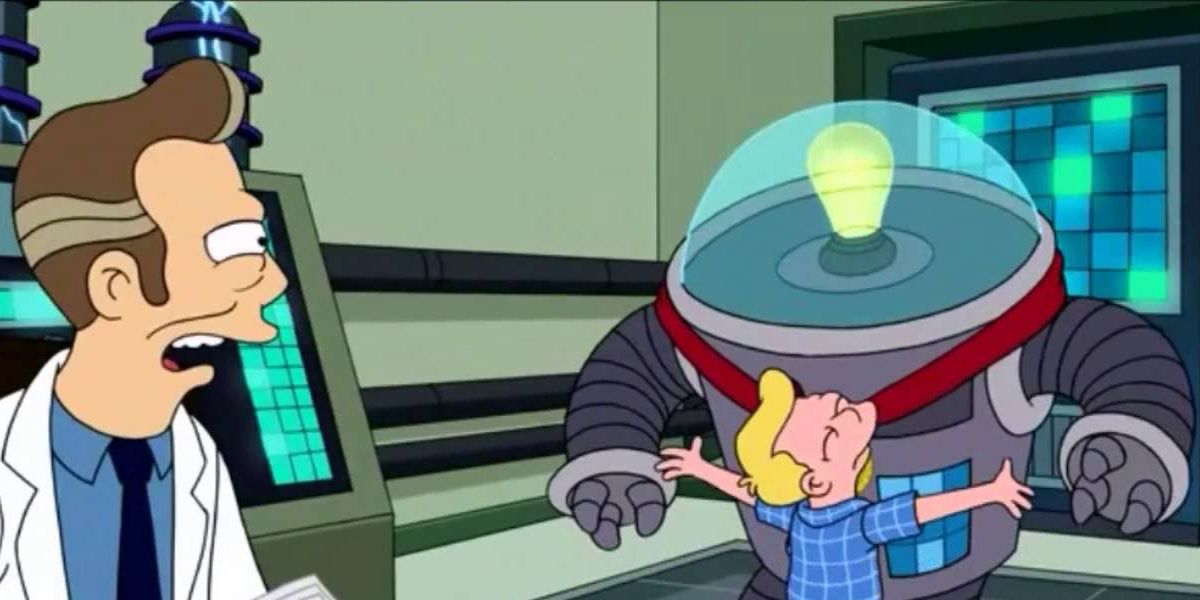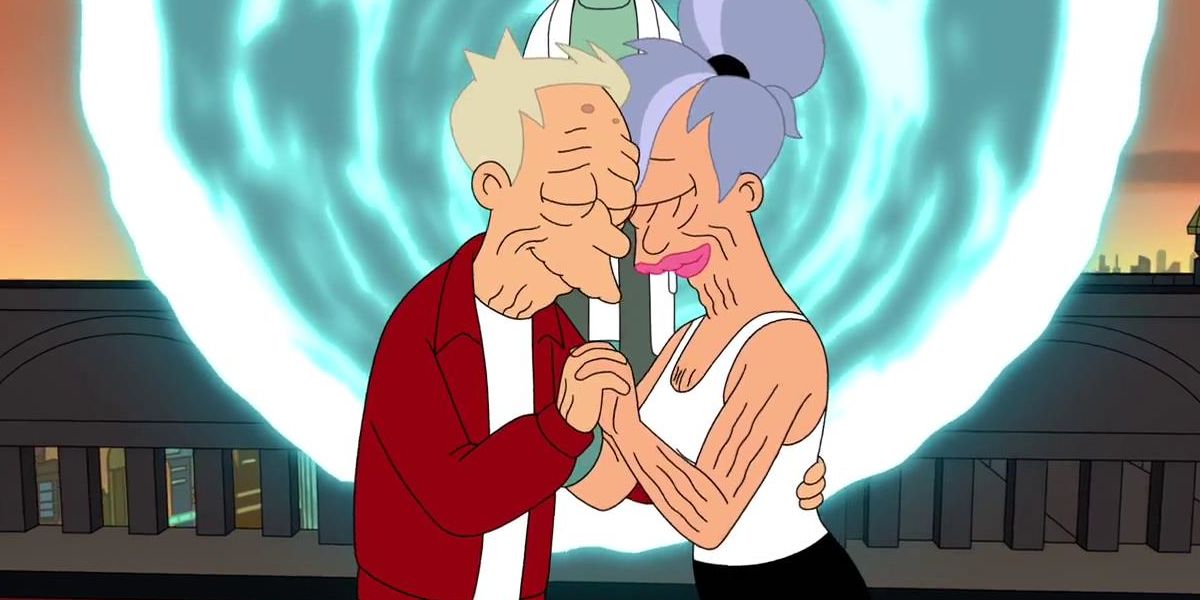Futurama fans are eagerly waiting for the Hulu revival because the show has become a sci-fi staple. The series' engagement with the hypothetical nature of science fiction makes it stand out. There's an explorative spirit that concentrates more on the "what-if" and "imagine that" aspects and is more interested in the realm of possibility than world-building or even keeping its own continuity. Futurama's ability to carry the torch for old science fiction programs like The Twilight Zone, Lost in Space and Star Trek: The Original Series makes the show critical to the genre's survival.
Over multiple episodes -- and multiple cancellations -- Futurama acknowledged the gone-by era of sci-fi. The show became one of the last bastions of true speculative fiction by including "The Scary Door," Futurama's answer to Rod Sterling and his conjectural narration, as well as other homages. Moreover, the installments containing these parodies often utilized retrofuturistic motifs typical of the golden age of science fiction, keeping it alive for a new generation.
Futurama Brought Classic Sci-Fi Concepts Back to Television
At the beginning of Futurama Season 2, Episode 3, "A Head in the Polls," Fry and Bender watched a "Scary Door" episode that referenced the iconic Twilight Zone episode "Time Enough at Last." While Futurama's episode didn't involve the literal destruction of Earth, it painted a nihilistic and grim sociopolitical future when the head of Richard Nixon was reelected as President. It was an excellent illustration of how the series fused the past with the present or future -- just like classic science fiction. Futurama continued this throughline in Season 3, Episode 15, "I Dated a Robot," which contained another "Scary Door" but also focused on Fry's futuristic bucket list: destroying a planet, going to the edge of the universe, riding a T. Rex and being romantically linked with a celebrity. These goals would have fit perfectly during sci-fi's Golden Age. And when Fry started dating a copy of Lucy Liu, his coworkers tried to intervene by showing him an educational film reminiscent of the instructional movies of the 1950s.
Season 3, Episode 19, "Roswell That Ends Well," was wholly steeped in retrofuturistic themes as the Planet Express crew took a trip back to the past and Fry became involved with his own grandmother. Almost a season later, "Spanish Fry," also contained some of the same over-the-top elements. Once Fry's nose was stolen by alien poachers to be sold as an aphrodisiac, the crew searches for his "human horn" by traveling to an off-world bazaar and Omicron Persei 8. Fry ultimately got his nose back with the help of Bigfoot. The storyline served as a reminder that speculative fiction is more about fantastic storytelling than cohesive storytelling. The same could be said of Season 6, Episode 7, "The Late Phillip J. Fry," which placed Bender, Fry and Professor Farnsworth in a time machine that could only travel forward. As they journeyed through Earth's timeline, the trio encountered points that made allusions to the Planet of the Apes and Terminator film franchises, as well as a time when there was nothing but women and another when humanity split into two different species.
Futurama's Speculative Fiction Approach Paved the Way For Its Series Finale
Futurama's nods to the speculative spirit culminated in its final episode "Meanwhile." The episode parodied The Twilight Zone's "A Kind of Stopwatch" by introducing Professor Farnsworth's time-traveling remote, which allowed anyone to go back 10 seconds in time. When Fry stole it, he was forced into a time loop that he couldn't escape without dying. Leela's attempt to rescue him accidentally destroyed the device, which caused time to freeze. The stranded duo roamed the Earth until a glimmer of light -- which happened to be Farnsworth -- fixed the machine and set everything right. It was an emotionally-driven finale that was entirely about possibilities and ended on a note of hope.
The show's consistent use of retrofuturistic concepts and its allusions to the science fiction programs that came before have let Futurama preserve the traits of classic science fiction. What once made up sci-fi's Golden Age and laid the groundwork for many more stories has slowly faded away in a sea of more complicated and darker storytelling. But thanks to Futurama's upcoming Hulu reboot, viewers have a chance to "go around again" with a different kind of sci-fi.
Futurama does not have an official return date, but past episodes are streaming on Hulu.



